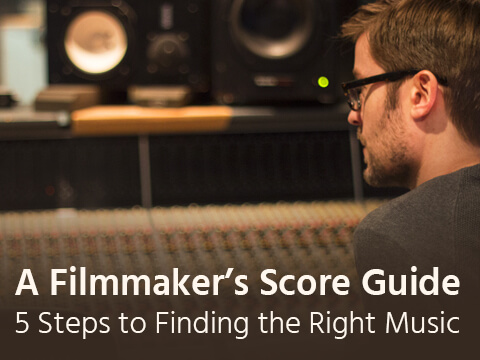Far be it for me to dismiss production music. I’ve written a lot of it and it certainly has its place. But for a filmmaker pouring their heart and soul into crafting a film, nothing but highly considered and tailored film music will do.
The truth is: stock music is to film what a ready meal is to cuisine. It serves a purpose but doesn’t provide a memorable experience.
If you want to elevate your film to the next level pay attention to the music.
This is Why Film Music Matters
Composed music delivers a unique character, consistent tone and repeated motifs that library music can never provide.
If you choose production music for your film, you’re limited by the structure, emotion, motif and theme. There is only so much an editor can do within the limitations created by using pre-produced music.
Go gourmet, and you’ll be crafting a musical experience that complements and elevates the visual delivery and for that you’ll need a TV and Film Composer.
The film music and the visuals need to be working hard and together to immerse the viewer in an emotional experience. A bespoke piece of composed music should be at the core.
As Gary Welch from music supervision company EyeHear says, ‘a scene or even an entire film can shine with the right piece of music’.
To take your film’s music to the next level, and maybe even secure an award this year, take these steps to find your perfect musical accompaniment.
5 Steps for Finding the Right Music Every Time
1. Plan your music from the outset – don’t leave it till last
The earlier you’re able to work with a composer, the better your music will be. Even if you’ve not finalised your edit, know there will be changes or are unsure of the direction, your composer needs to understand the very essence of the film – grasping your vision is vital. Include them early on, share your dream for the film and let them get under the skin of your creative vision. The results will elevate the music and with it, your film.
2. Work closely with your composer
It follows that you need to work closely with your composer. You’re asking them to translate words and ideas into music. Keep them at a distance and they’ll struggle to interpret your concepts accurately. Invite them in, be honest and vulnerable – a composer will never expect you to have all the answers and will welcome the opportunity to problem solve with you.
3. Allocate around 10% of the total budget to music
If sound is 50% of the cinematic experience, why should music get 0% of the budget? It’s misguided to leave your film’s music without a penny in the pot.
Whether you’re clearing commercial music via licences or commissioning a composer to write a score, you will need to pay for whatever music you want to use. Assign around 10% of the total film budget to music to cover your musical bases.
4. Upgrade to real musicians at every opportunity
Just as an actor’s delivery of a line changes the impact of a scene, the way an instrument is played affects the delivery of the music. While there’s a cost implication to using real musicians versus synthesised sounds, the difference is almost always worth it. In my experience, this is one award-winning ‘upgrade’ your film certainly deserves. Check out this Real vs. Fake video for a listen to the difference.
5. Ensure there’s a good vibe
As a fellow creative, there might be instant synergies between yourself and your composer, but there could be untold differences down the line. Look for a composer who’s self-aware, their own toughest critic, who has a good few years’ experience under their belt and understands your genre. Do they listen to understand, or listen to reply? That can reveal a lot about ego, confidence and capability. Above all, trust your judgement.


